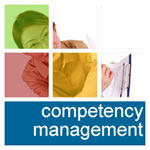A Definition and Guide in Measuring Competence
 Competence is…
Competence is…
…the ability for an individual to perform a specific task to a set standard, on several occasions under different circumstances.
As an example, consider the motor-mechanic who works on an engine when it is clean and mounted on a bench. Can they then perform that same task to the required standard when it is mounted at an angle in the car’s engine bay? Can they also perform that task to the required standard when they are working on the engine in the car, at the roadside when it is at night and maybe raining?
The above definition of competence means that in order for businesses and organisations to have confidence that their employees are ‘competent’, several things need to be in place.
The first thing that needs to exist is of course the ‘standard’ that the person has to perform competently too. This may be a regulated, work-place based qualification or a bespoke in-house standard.
The standard must also explicitly state:
- What the person needs to know and understand in relation to the task;
- What the person must be able to do (perform) in relation to the task;
- What differing circumstances the person should be able to perform the task;
Regulated qualifications in the UK have standards which have been written by groups of industry professionals (sector skills councils) and will have clear knowledge and understanding criteria as well as performance criteria. Some may also have explicit rather than implicit ‘range statements’ which indicated the various circumstances under which they must be able to complete the task.
Simply training employees to a standard is not enough to ensure that they are competent indeed; Health and Safety Regulators will not consider someone as competent if they have only been trained to a standard but never actually measured against that standard. This has major implications for any business or organisation where an employee is injured or killed and they (the organisation) cannot prove that they were competent only trained.
In order to be deemed competent they will need to be measured and in order to measure these people; a system and other people will need to be in place.
People other than the person being measured against the standard will include:
- Assessors;
- Internal Quality Assurers (formerly Internal Verifiers);
- External Quality Assurers (formerly External Verifiers) (only for regulated qualifications);
The measurement of a person against a standard is called ‘assessment’ and this is done by qualified Assessors.
An assessor is a person who has the occupational background that will allow them to make a judgement on whether or not someone is competent and also has the skills and qualification as an Assessor.
Assessors will in turn have to controlled, coordinated and measured for consistent performance across all the assessors within an organisation, this is called Internal Quality Assurance (IQA) or Internal Verification (IV) and is usually done by a person who has been a time-served assessor and then trained and measured to the standards for internal quality assurance.
These roles, the assessors and internal quality assurers, sit within the Centre (Awarding Centre) which may sit within a regulated structure under an Awarding Body, i.e. City & Guilds, OCR, Edexcel, etc. or be simply an In-House Centre.
The Gill Payne Partnership Ltd has been designing and implementing competency systems for several decades and is also involved in the design of bespoke standards of performance (competence) for organisations of all sizes. Our systems are in use within some of the largest blue-chip business and public bodies within the UK.
See also: Competency Management, Assessors, Internal Quality Assurers,

